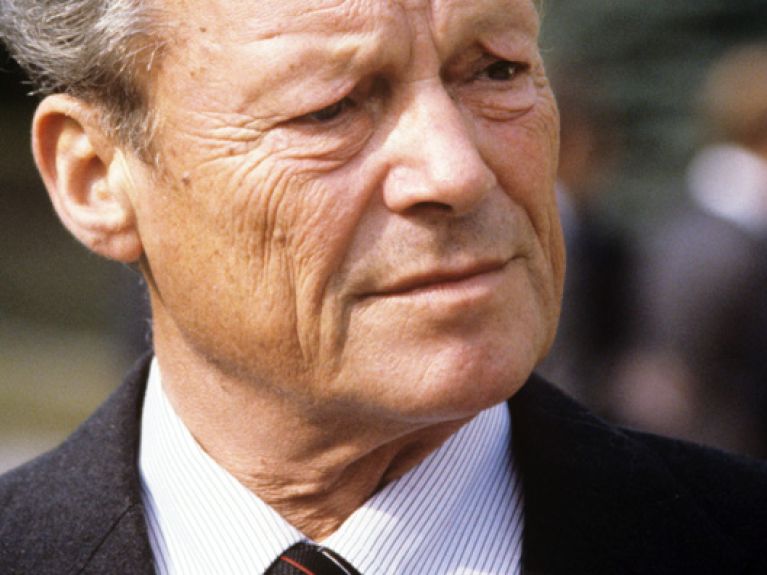The 100th birthday of Willy Brandt
The former Federal Chancellor Willy Brandt left his mark on Germany’s political landscape as have few other politicians.

No other politician woke emotions to a similar extent. In 1971 Willy Brandt was the first German to be awarded the Nobel Peace Prize after the Second World War: for his Ostpolitik, which was designed to relax and balance tensions between Germany and the Eastern European states. Especially remembered is his genuflection in December 1970 before the memorial to the Warsaw Ghetto, which commemorates the defeated uprising of the Jewish population. This gesture went around the world – and is still regarded as the breakthrough in German-Polish relations. But, above all, many political experts credit Brandt with having inspired large numbers of people to political engagement and for democracy – an effect that continues to this day.
He was born as an illegitimate child by the name of Herbert Ernst Karl Frahm in a working-class neighbourhood in the north German city of Lübeck on 18 December 1913. The name under which he became known around the world, Willy Brandt, he gave himself as a young man, as a nom de guerre. After the Nazi seizure of power in 1933, he fled Germany for Scandinavia because the SAP, the socialist splinter party to which he belonged, had formed a kind of underground youth opposition to Hitler. Beginning in 1942, he was a member of a circle of democratic socialists in Stockholm who developed peace plans for Europe.
After the Allied victory, Brandt returned to Germany and became engaged, now again as a member of the Social Democratic Party of Germany (SPD), in West German politics. In October 1957, the convinced politician became Governing Mayor of West Berlin and witnessed the building of the Berlin Wall by the GDR regime and the consequent division of the city. As Vice Chancellor and Foreign Minister of the Federal Republic in the Grand Coalition (1966-1969), Brandt, together with his colleague Egon Bahr, developed the idea of a new Ostpolitik “of small steps”. In October 1969 was elected the first Social Democratic Federal Chancellor and declared in his government policy statement his desire to “dare more democracy”. He also dared to relax tensions with the states of the Warsaw Pact and initiated the so-called “basic treaty” with the GDR, which gave considerable relief to many West Germans with relatives and friends in East Germany.
In the spring of 1974 Brandt resigned the chancellorship. The trigger was the unmasking of his aide Günter Guillaume as an East German spy. In the following years Brandt served as President of the Socialist International and in 1977 accepted the chairmanship of the North-South Commission, which already then was grappling with the problems of a globalized world. Before his death in 1992, Brandt was able to witness in the autumn of 1989 the fall of the Berlin Wall and said in a moving speech: “Now grows together what belongs together”.
On 18 December 2013 Willy Brandt would have been 100 years old. His hometown of Lübeck, in cooperation with the Federal Chancellor Willy Brandt Foundation and the Norwegian-German Willy Brandt Foundation, will honour him with a ceremony.
“Ceremony honouring Willy Brandt”, 11 December 2013 in the Hanseatic City of Lübeck.
The 100th Birthday of Willy Brandt, 18 December 2013

